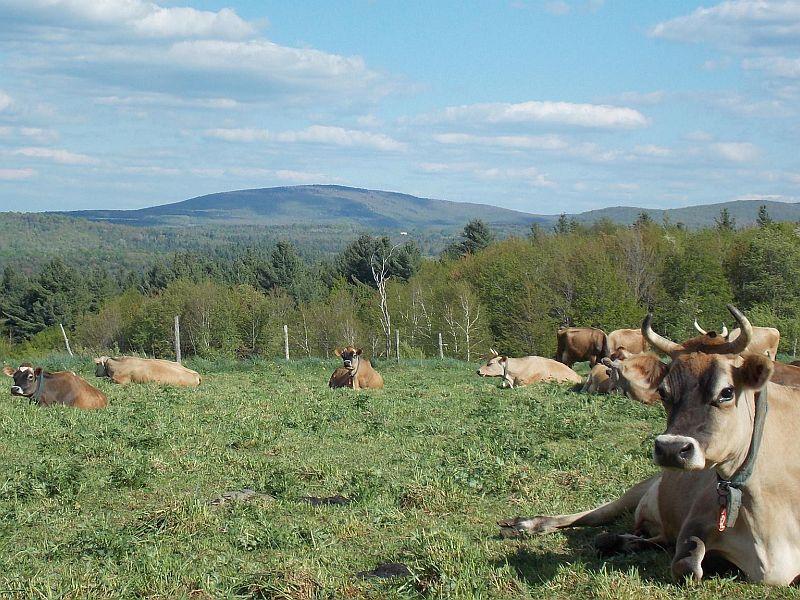As Crisis Rocks Dairy Industry, Farmers Focus On How To Manage Milk Supply

Vermont has lost 66 dairy farms this year, and that has prompted farmers to consider news ways to stay in business by controlling the over-supply of milk. Photo courtesy of Butterworks Farm
Dairy farmers in the Northeast say they’re ready to talk about something that’s been almost off limits for decades: how to manage the milk supply to stop overproduction.
Farmers are struggling, and a fourth year of low milk prices has driven many out of business. In response to the crisis, several hundred farmers will gather Monday for a day-long meeting in Albany, New York.
Vermont Agriculture Secretary Anson Tebbetts grew up on a dairy farm, and has seen the boom and bust cycle of milk prices for years. But these last few months have been the worst he’s witnessed.
“In Vermont alone we’ve lost 66 this year. So we’re talking 8-10 percent of Vermont farmers have gone out of business this year,” he said. “Something has to change. We can’t continue to keep the current system in place if we’re going to retain farmers.”
If crisis creates opportunity, then the meeting Monday might be the best chance in years to gain support for some sort of a system to manage the milk supply, Tebbetts said.
The market now is awash in too much milk. And for economic reasons, farmers often add more cows so they can sell more milk just to keep afloat as prices fall. But it’s a vicious circle because it leads to even more over-supply. Tebbetts said there’s got to be a better way.
“Instead of when the price goes south, that you have to increase your production, this approach may be like we’re going to have incentives to not have you put on more cows [and] increase production which drops the price to the farmers,” he said.
And the region’s largest dairy co-op, Agri-Mark, wants to explore supply management. Bob Wellington is its senior vice president and a dairy economist.
He said several different supply management proposals will be up for discussion next week. One is called a “base-excess” plan. It would simply pay farmers a set amount for milk produced at their historical production level – call that the base – and then anything over the base – the excess – would earn the farmer less.
